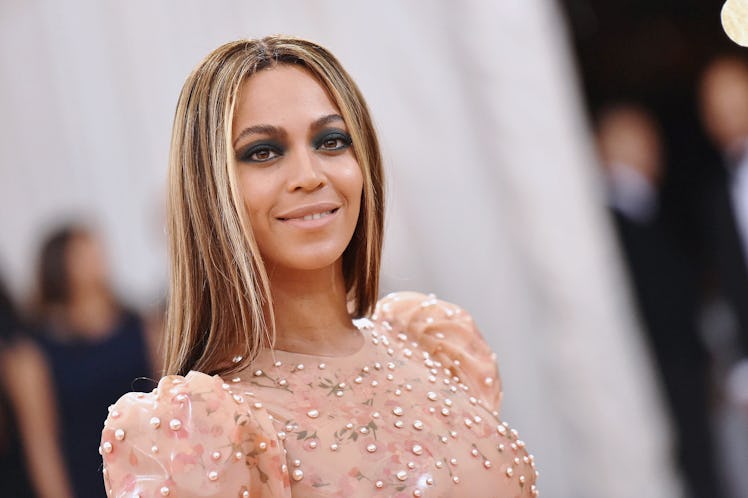
Russian Agents Literally Tried To Use Beyoncé To Wind Up Americans On Facebook
On Thursday, May 10, Democrats on the House Intelligence Committee released around 3,500 advertisements used by Russian agents between 2015 and 2017 on Facebook and Instagram, which is owned by Facebook. Within the records of ads, one name stood out above most: Beyoncé. The release from the House Democrats shows that Russian ads tried to use Beyoncé to exploit people's views on race.
The key word, though, is tried.
In February 2016, for example, two separate ads from two different accounts advertised an "anti-Beyoncé rally" and a "pro-Beyoncé rally." Both rallies were advertised as scheduled at the same time and place, the National Football League's headquarters in Manhattan.
The ads were published after Beyoncé performed at Super Bowl XL, as her as her and her backups dancers wore attire reminiscent of the Black Panthers. The performance became a cultural talking point — former New York City Mayor Rudy Giuliani ranted about it on Fox News, for example — and the Russian trolls seemingly tried to wield the storyline wind people up even more.
As The Washington Post mentions, neither of the ads seemed to attract much support, but the effort is indicative of what these ads aim to do: use cultural subjects to stir up the passions of people on either side of the debate.
California Representative Adam Schiff, the top Democrat on the House Intelligence Committee, explained in a statement,
They did this by creating fake accounts, pages and communities to push divisive online content and videos, and to mobilize real Americans, unwittingly, to sign online petitions and join rallies and protests. Russia sought to divide us by our race, by our country of origin, by our religion, and by our political party ... They sought to harness Americans’ very real frustrations and anger over sensitive political matters in order to influence American thinking, voting and behavior. This was accomplished by engaging in online communities built around common interests and that appeared organic and American, but were actually run by a troll farm in St. Petersburg.
The records of ads show that Russian agents tried to disparage one policy by attempting to attract people who support a separate policy, while making the policies seem like they are in conflict.
Check one other example.
An ad that was published in June 2015 had a caption that read, "The two recent U.S. wars were costly for our nation, to put it lightly. They led to domestic devastation of country. No matter what Defense Secretary or POTUS are saying they don't fool me with promises of gay military equality as key to the nation's agenda. Better talk to me about cutting DoD's budget. FOLKS."
During the summer of 2015, the rights of gay and lesbian couples in the military, and the benefits they have access to, was a subject that was trending in the news. The ad that alluded to that news very clearly tried to undermine support for the subject by attracting the attention of people who desire cuts to the military.
The files made public by the House Democrats show example after example of similar tactics being used on other subjects, like on the shooting of nine black church goers in Charleston.
The ads were released in an effort to help Americans understand what types of content troll farms use to try to gain attention, Schiff said.
The congressman said in his statement, "Last year, the bipartisan leaders of the House Intelligence Committee’s Russia investigation made a commitment to the American people to publicly release the Facebook advertisements used by the Kremlin-linked Internet Research Agency, so that Americans can begin to understand how Russia used social media to influence the 2016 election, and to divide us."
Among the people and topics those trolls tried to use "to divide us" was, clearly, Beyoncé.